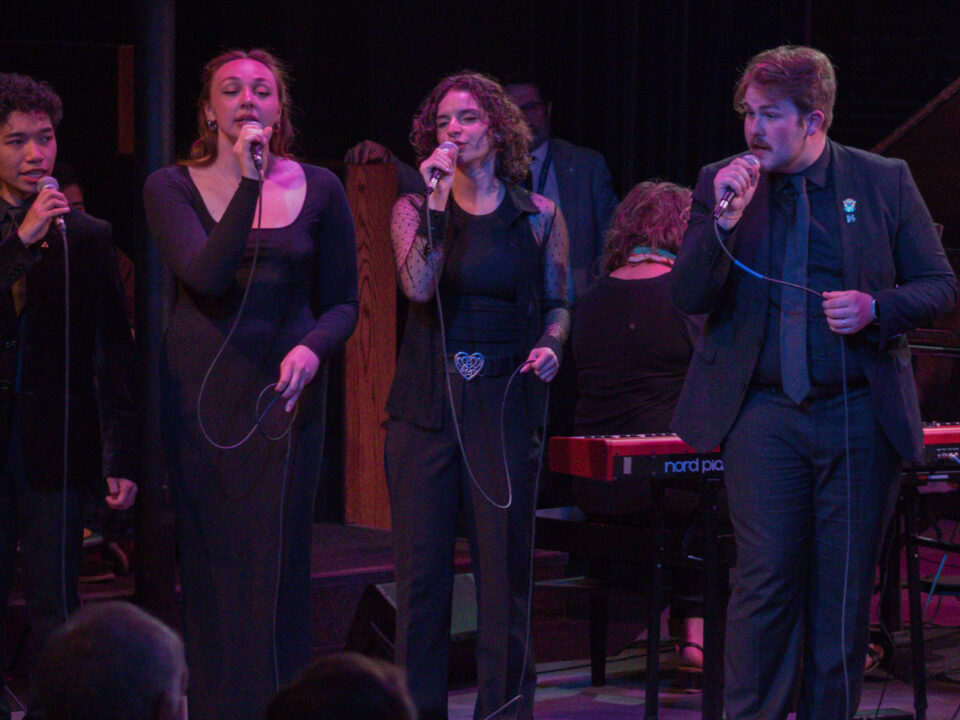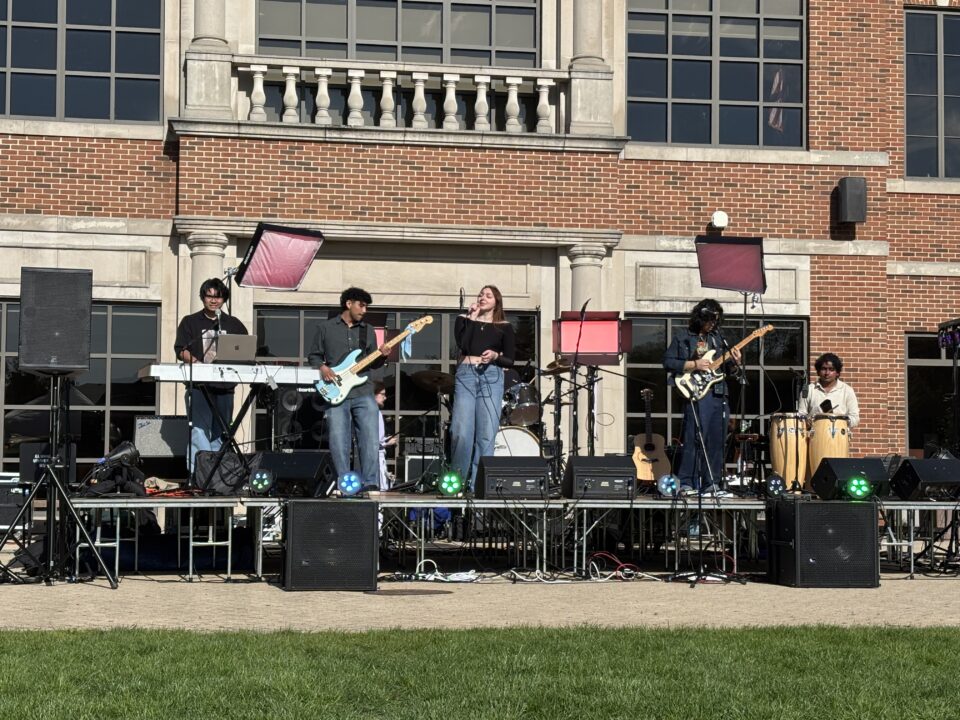The toll of COVID-19 on live events

Internet Photos. Graphic by Arturo Magallanes
COVID-19 has caused an immense struggle for many industries since its spread in March, one of the most impacted being live entertainment.
Artists canceling world tours, sporting events being postponed, and theaters closing their doors are only one impact of the virus’ many consequences. CDC guidelines categorize these events as “high-risk” events, where large groups gather, which makes it difficult for people to remain six feet apart.
As a result, those involved in the entertainment industry have suffered a major blow. Among them are those working behind the scenes to make these events happen. Since the lockdown in mid-March, more than 57 million Americans have filed for unemployment. These Americans wrestle with the chance that they may not return to the workplace as soon as 2021, with event crews making up a large portion of filers.
For Rafael Ayala, CEO of Production Depot — a company that specializes in the installation of audio, video, and lighting for concerts — this has put their work on hold. “The pandemic affected us in that the events we do are in theaters, in massive venues that hold thousands of people. They’ve all been canceled.” Ayala said.
Those who still hold shows are now resorting to alternative methods. Artists such as Billie Eilish, BTS, and Sam Smith have switched to live streaming their performances instead. In BTS’ two-day “Map of the Soul On:e” online concert alone, they totaled an estimated 993,000 viewers.
Though a safe compromise, it is not a replacement for an in-person show. The majority of these events are ticketed, which many people currently struggling with unemployment are either not able to afford, or do not see value in paying for an experience that was meant to be seen physically.
The money that is brought in from these shows is also not always enough to cover costs for the artist, much less their staff. During the end of July, Live Nation revealed that they had a 95% decrease in revenue earned from the same time last year. Alternative methods typically do not make up for lost concerts, and not every artist can or wishes to hold them, but it is a start.
Currently, in Chicago’s Metro, they are giving live streaming a shot as an independent theater. On Oct. 17, they joined various venues across the nation, with their musical guest, Rise Against, to host an online concert via YouTube. The three-day event, hosted by the National Independent Venue Association, allowed them the opportunity to keep their business afloat.
Regardless of a venue or artist’s decision, a full return to regular concerts will take time. Stadiums will have to be replaced by smaller-scale venues as long as the effects of the pandemic last. For Ayala, whose company has worked with musicians such as Bad Bunny and Maluma, returning to work will be a gradual process.
“There likely won’t be events until at least December, or possibly the upcoming year,” stated Ayala. “It’ll be a bit difficult. We’ll have to start doing small events and build up.”


